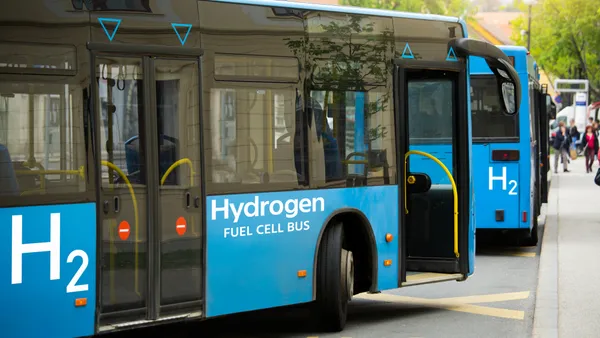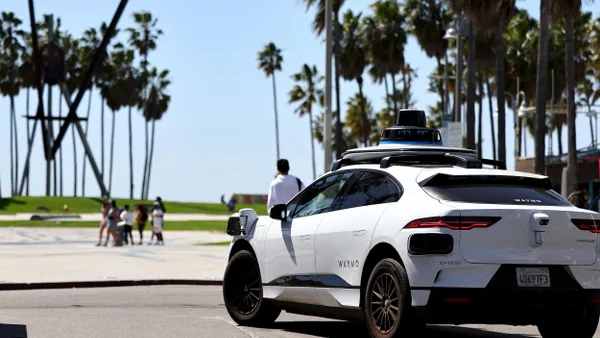Dive Brief:
- Baltimore City Council unanimously approved a Complete Streets bill on Monday, aimed at improving road safety, according to the Baltimore Sun and others.
- The legislation, which still needs a final vote and the signature of Mayor Catherine Pugh, requires that the city’s Department of Transportation must "to the greatest extent possible, promote walking, biking and public transit." It also creates a Complete Streets Coordinating Council to oversee the bill’s requirements.
- "There is pent-up demand to shift to non-automobile modes if only street design would allow for it," Council Member Ryan Dorsey, who sponsored the bill, wrote in a paper justifying the legislation. "Shifting some automobile traffic to walking, biking, or transit has multiple health, economic and transportation benefits."
Complete Streets passes second reader unanimously, moves to third reader on October 29th. pic.twitter.com/xoBVCET3sv
— Bikemore (@bikemorebmore) October 15, 2018
Dive Insight:
In a tweet after the legislation passed, Jed Weeks, policy director for local cycling advocacy group Bikemore, said it was "the most progressive, equity focused Complete Streets policy in the country." And it comes with the country facing a spate of deaths on its streets, a trend that has been increasing in recent years and has left transportation advocates and elected officials with plenty to ponder. Earlier this year, the Governors Highway Safety Administration (GHSA) released statistics projecting 6,000 pedestrian deaths in 2017, a number it said is “essentially unchanged” from 2016 and is at a 25-year high for the second year in a row.
In Baltimore, the legislation is also being viewed as a way to promote equity in a city where one in three households do not own a car. During city council’s deliberations on the bill, per the Baltimore Sun, Dorsey said a shift is required in city planning to build streets around people, rather than around places to drive and park. This is part of a wider shift in cities across the United States, which are being urged to redesign streets to encourage multimodal use and also to a lesser extent to prepare for the growth of autonomous vehicles (AVs). That is in addition to tightening traffic laws at the local and state level to more effectively punish lawbreakers.
Such tweaks to laws and street design have already had some impact in cities like Boston, which has seen a reduction in fatal pedestrian accidents, but still has a lot of work to do. And Dorsey’s legislation has already received recognition for how it plans to help Baltimore. In March, the National Complete Streets Coalition named it one of its 12 best Complete Streets initiatives of 2017, and advocates think it will have a major impact.
“Complete Streets is about so much more than bikes, and it’s past time we as a city commit to a policy that improves the health, safety, and mobility of all Baltimore residents," Bikemore Executive Director Liz Cornish said in a statement at the time.












